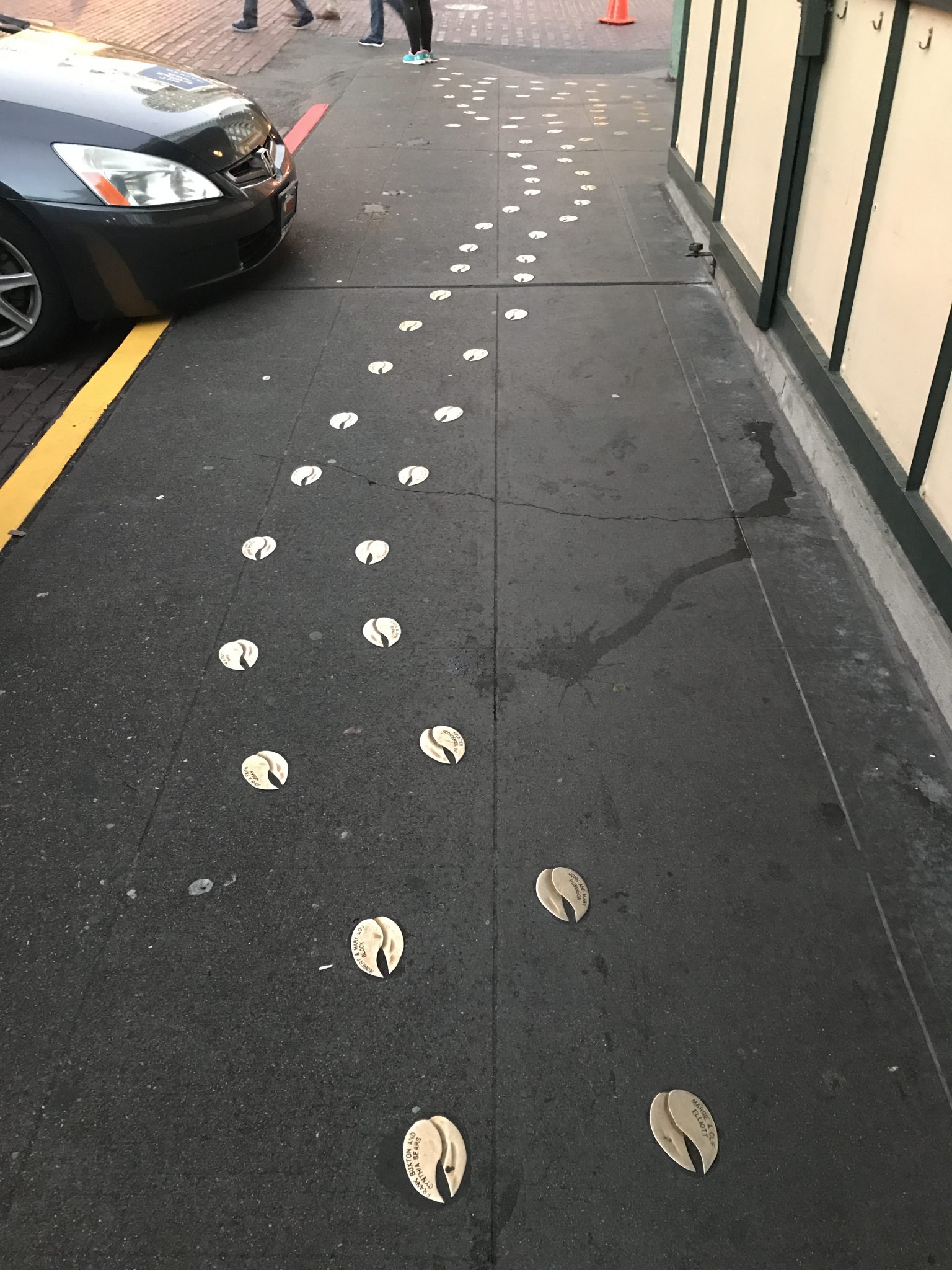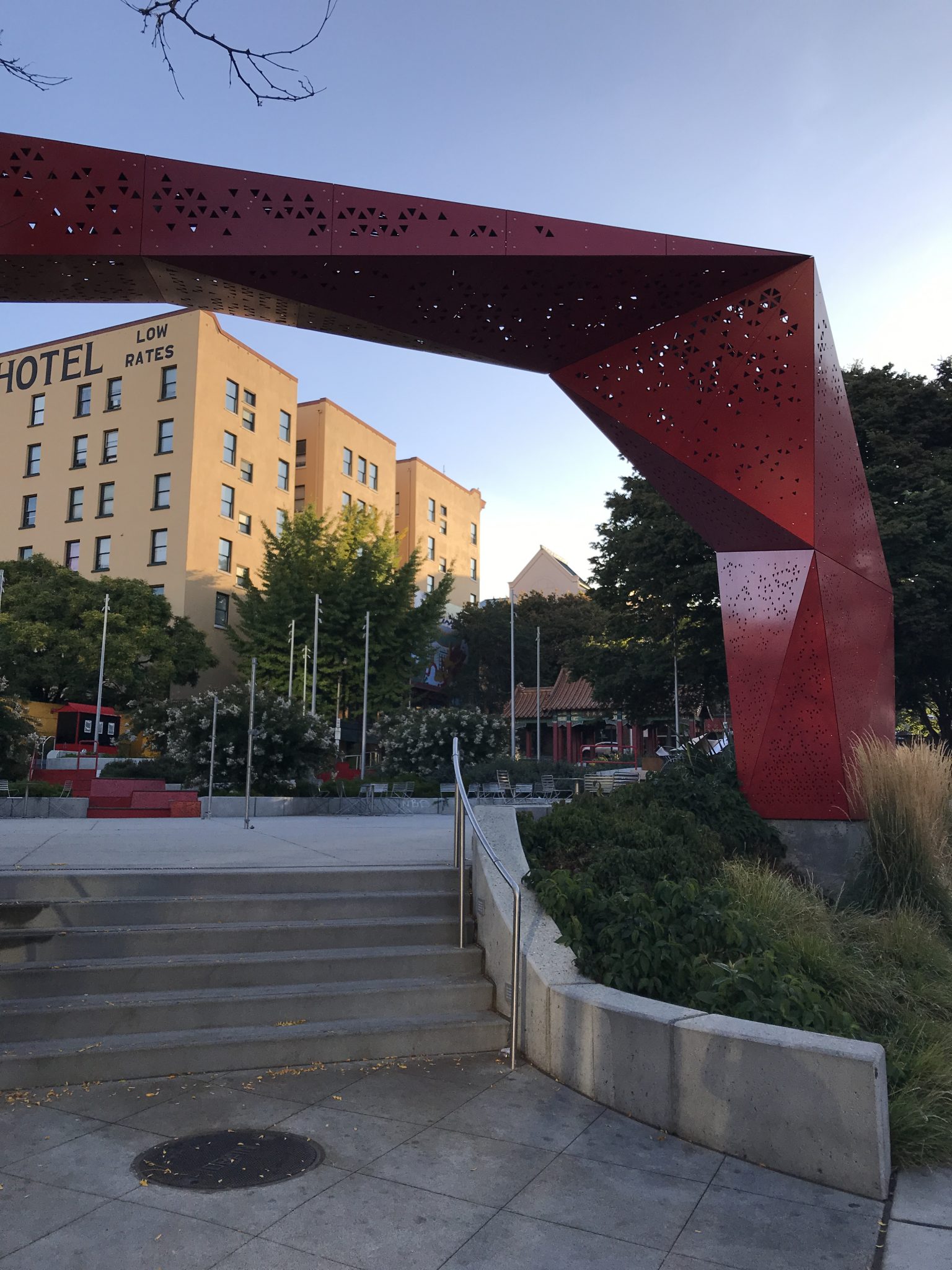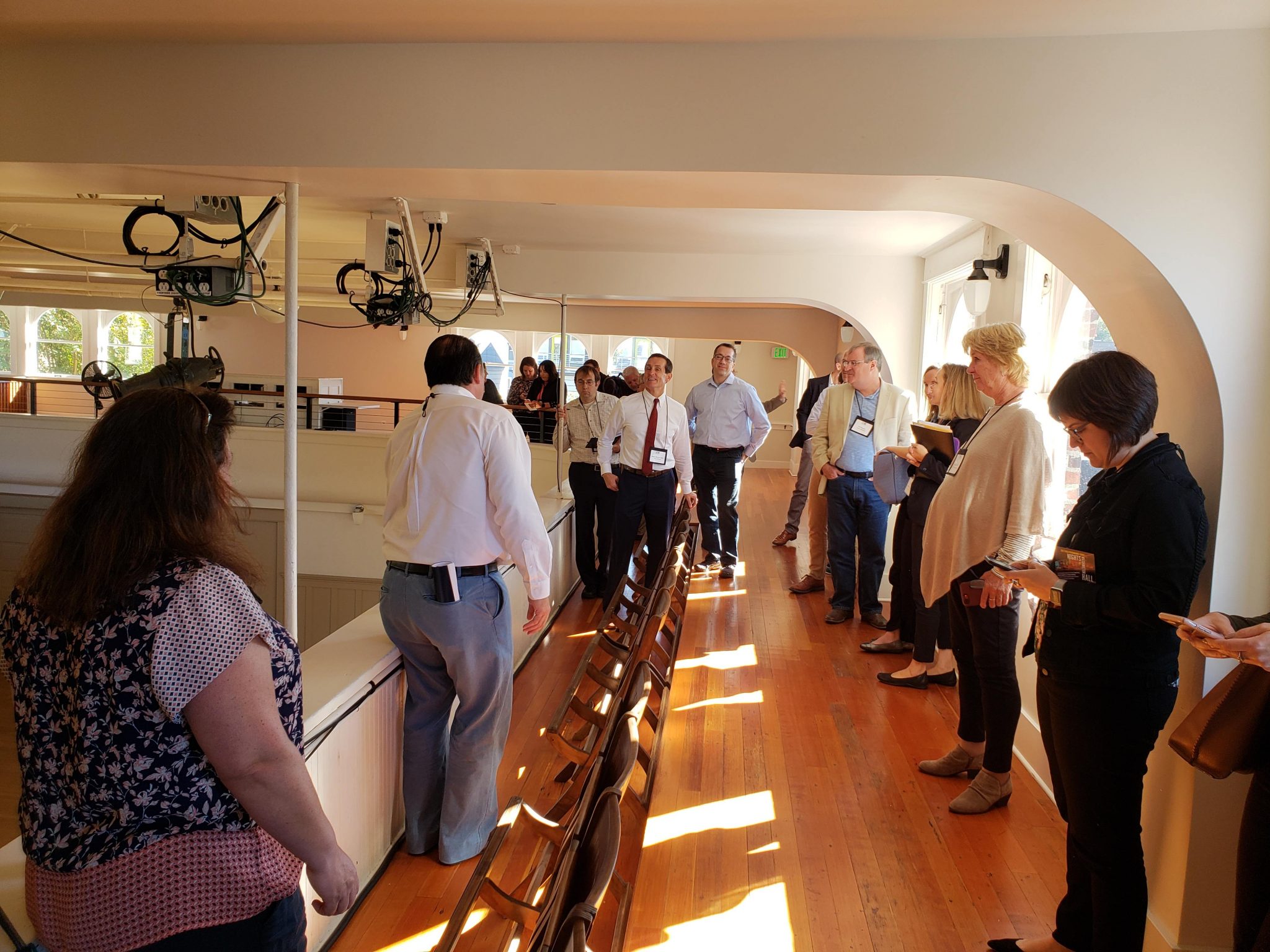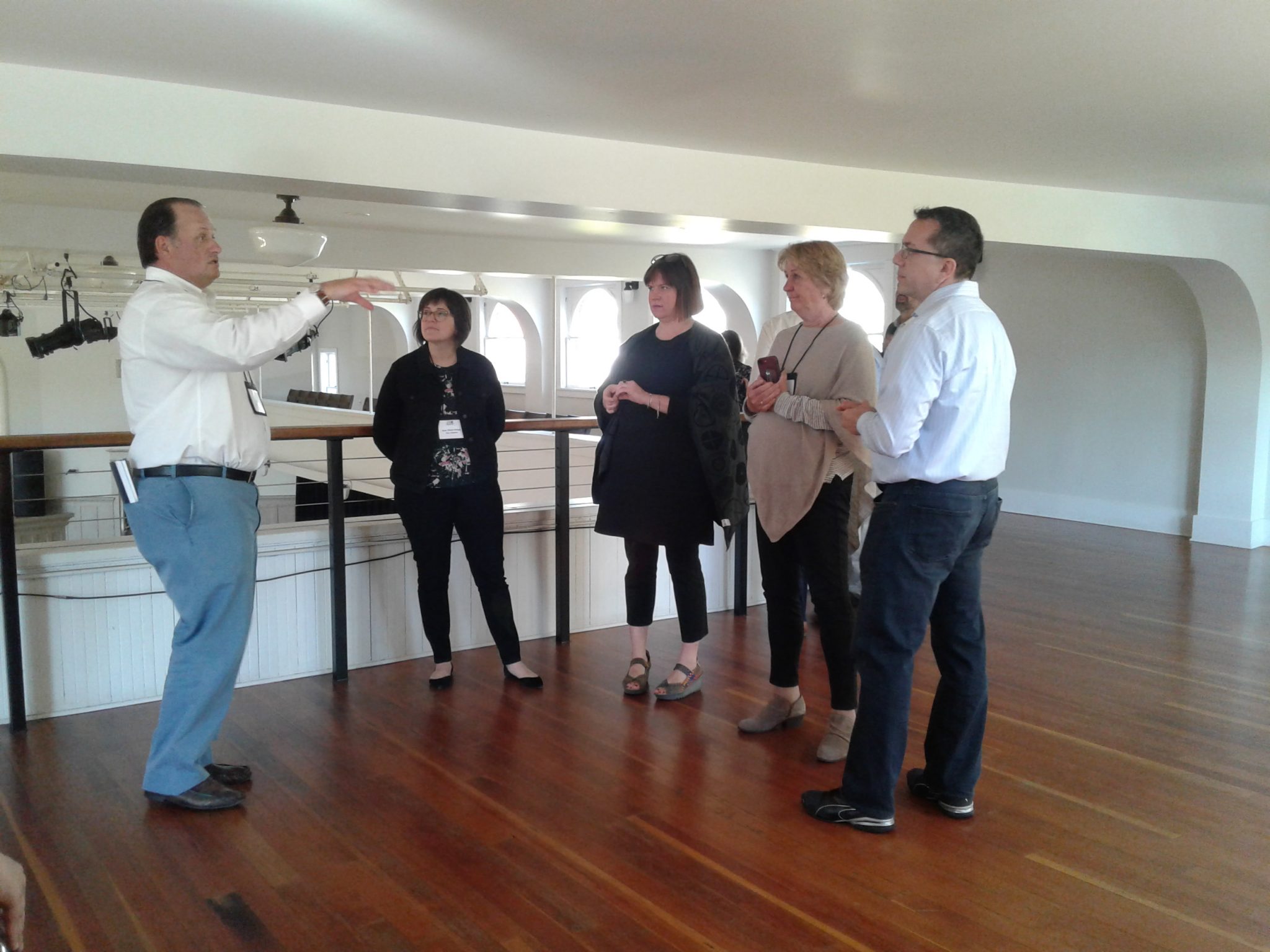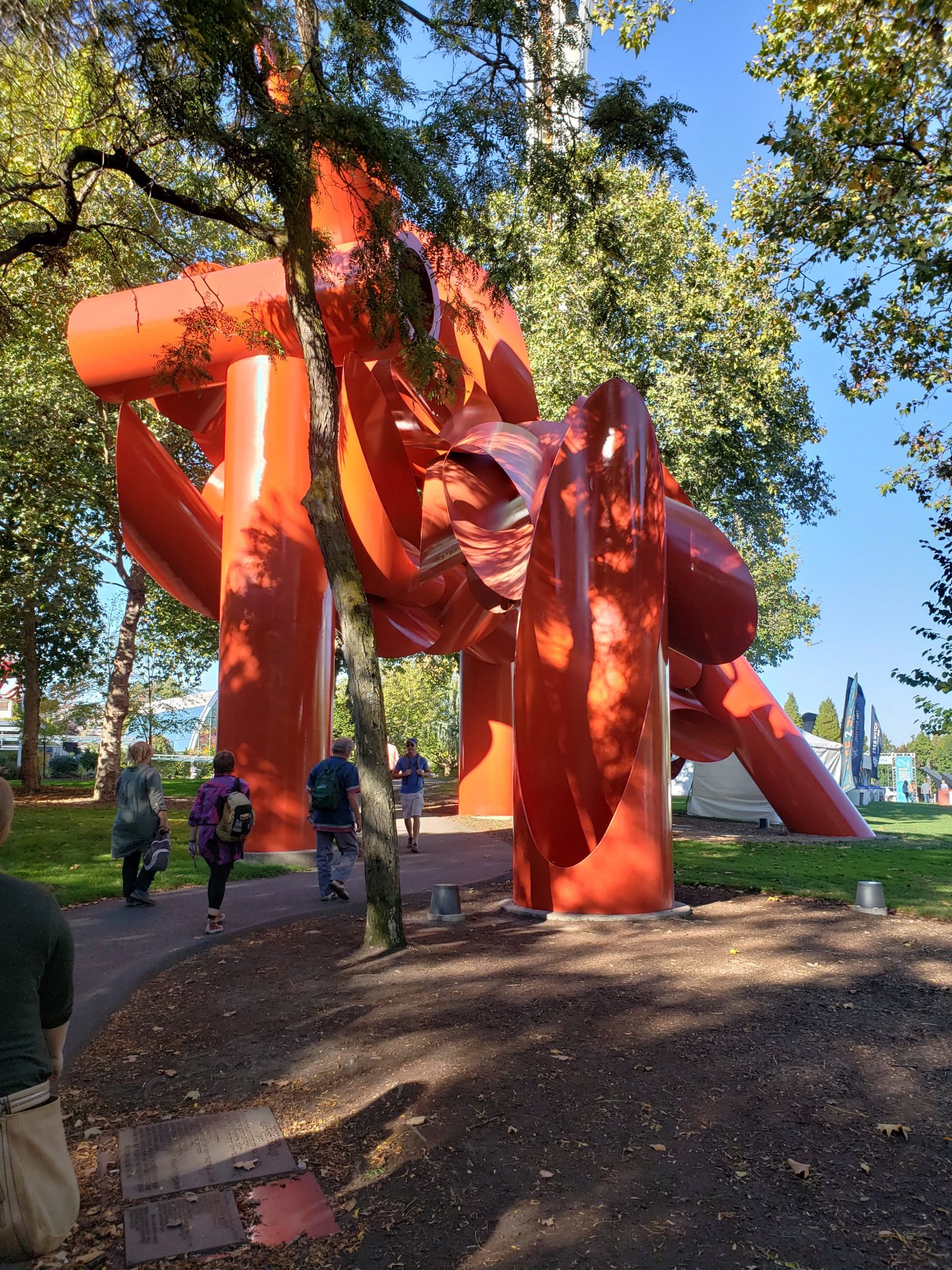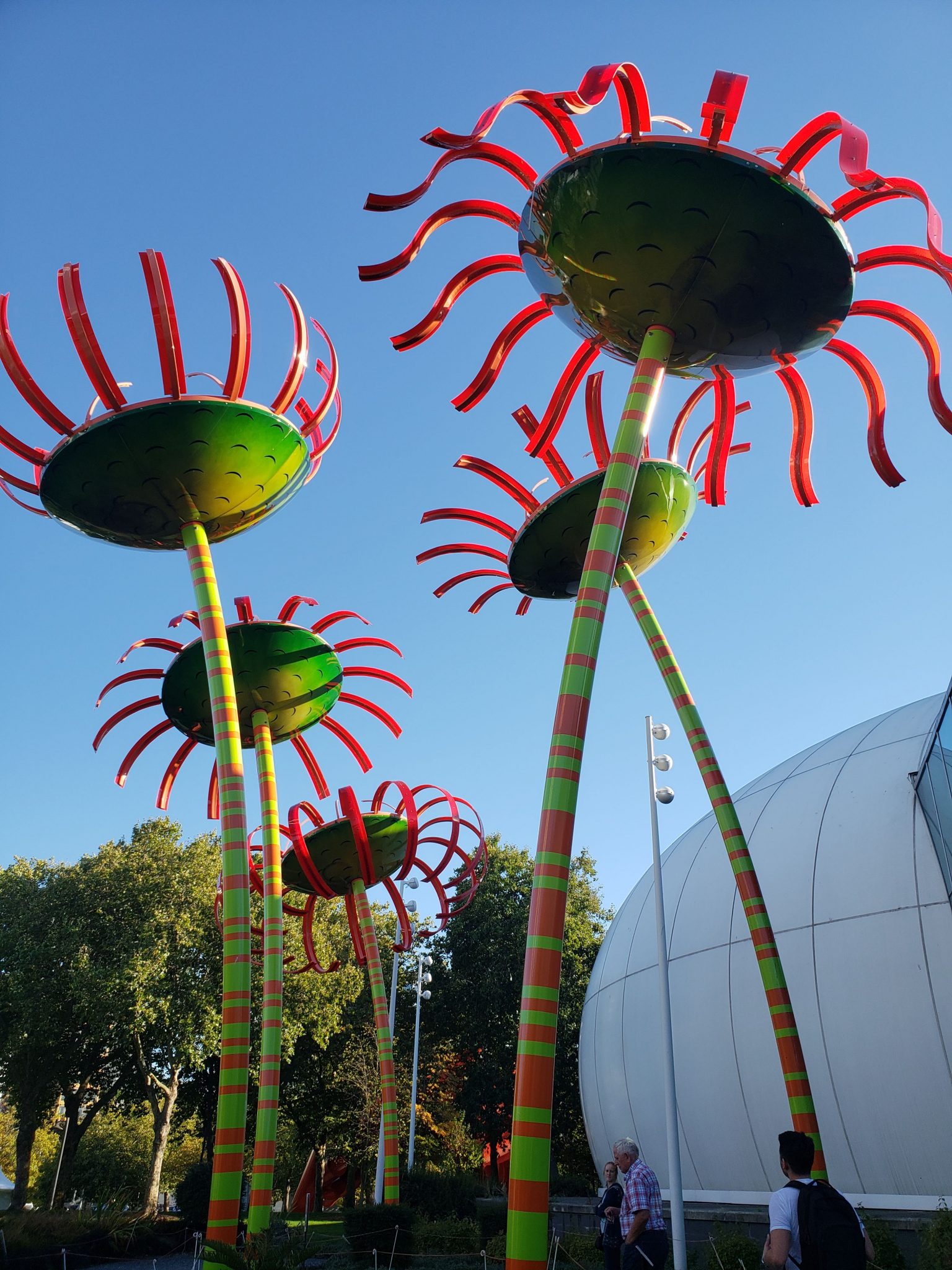 When MAPC launched its Arts & Culture Division in 2017, the agency vaulted into the national vanguard for integrating arts and culture into urban and regional planning. As the Arts & Culture practice grows, the MAPC Arts & Culture team is eager to learn from other national leaders in the field and to develop a cohort of leaders within our region and across the Commonwealth who can help advance conditions for arts and culture to thrive. That’s why, at the end of September, members of MAPC’s Arts & Culture team joined state legislators and local civic leaders on a “Learning Journey” to Seattle and King County, Washington.
When MAPC launched its Arts & Culture Division in 2017, the agency vaulted into the national vanguard for integrating arts and culture into urban and regional planning. As the Arts & Culture practice grows, the MAPC Arts & Culture team is eager to learn from other national leaders in the field and to develop a cohort of leaders within our region and across the Commonwealth who can help advance conditions for arts and culture to thrive. That’s why, at the end of September, members of MAPC’s Arts & Culture team joined state legislators and local civic leaders on a “Learning Journey” to Seattle and King County, Washington.
Twenty-four mayors, state legislators, city councilors, planners, and public and nonprofit agency employees took the trip from Massachusetts to Washington state to learn firsthand about the region’s successes and challenges in advancing arts culture, and creativity through local and regional initiatives.
The Seattle and King County region of Washington State is known for its visionary and innovative arts and cultural work that engages an array of city and county departments and agencies. Through a series of tours, presentations, and panel discussions, participants had a chance to see first-hand how the Seattle Office of Arts and Culture and regional arts agencies like 4Culture are working together to build cross-sector partnerships to support artists, uplift culture, and address issues of equity.
On Thursday, Sept. 27, delegates visited the Wing Luke Museum of Asian Pacific American Experience – named for the first person of color to sit on the Seattle City Council and nationally recognized for its work in creating dynamic, community-driven exhibitions and programs.
They were welcomed by Ken Workman, the direct descendant of Chief Seattle. Mr. Workman translated a traditional welcome from the Duwamish people to the delegation to open the event. The delegation was also greeted by Seattle’s Deputy Mayor, Shefali Ranganathan, who encouraged them to “think outside the box” when it comes to creating partnerships.
“If we don’t think of unusual partners, we miss knitting together partnerships that drive success,” she said.
In the morning, participants heard about “Arts Education and the Future of Work” from Lara Davis of the Seattle Office of Arts & Culture, Kate Baker of Seattle Public Schools, Orlando Morales of 5th Avenue Theatre, and Rebecca Lovell of the Seattle Office of Economic Development. Presenters highlighted the importance of a pathways approach to arts education, which is embedded in Seattle’s Creative Advantage arts education initiative.
“If we are not intentional about how to prepare youth for the future of work we will exacerbate income inequality,” said Lovell. “When I think about where the opportunities lie...the themes are creativity, empathy, and computational thinking...these are the through lines that won’t be automated anytime soon.”
Themes of arts education and work were knitted together with ideas about cultural space and equitable development. Matthew Richter of the Seattle Office of Arts & Culture, Cassie Chin of the Wing Luke Museum, and Michael Blumson of Seattle’s Equitable Development Initiative in the Seattle Office of Planning and Community Development emphasized how arts and culture planning, equity, and community development can go hand-in-hand.
“We do not have a linear definition of what equitable development is,” said Blumson. “We are asking community members to tell us what it is - to define it. Culture is what binds these communities together. You can't really have a conversation about preserving a neighborhood and community if none of that arts and culture space is there.”
In the afternoon, the delegation visited the SODO Track, a series of murals painted along a two-mile transit corridor leading to downtown Seattle. Later, they were able to discuss municipal-regional arts and culture collaboration with the Director of the Seattle Office of Arts and Culture and 4Culture’s Director of Public Art.
SODO Track murals
On the second day of the Learning Journey, the Massachusetts leaders toured Seattle’s historic Washington Hall and heard from two more panels: one on the King Street Station project and one on the Creative Justice Program. King Street Station has served the residents of Seattle for over 110 years, and now the city is transforming it into a hub for arts and culture. Heidi Jackson at 4Culture presented on Creative Justice, an arts-based alternative to incarceration for young people in King County, Washington.
Participants engaged with mentor artists as they looked at the root causes of incarceration and how they intersect with racism, classism, and other systemic oppressions. Creative Justice Mentor Artist Olisa Enrico-Johnson led the delegation through an exercise used in the Creative Justice program to create an impromptu mini-theatre performance. Mentor Artist Silas Blak, a chef and poet, demonstrated his skills as a culinary artist by catering an impressive lunch.
This Learning Journey brought together a cohort of regional leaders to learn about what another region is doing in the face of the same challenges and opportunities facing Massachusetts. MAPC, along with our Seattle partners 4Culture and the Seattle Office of Arts & Culture, hopes that this group will be inspired by what’s being done in Seattle to jumpstart new approaches to funding and tracking our progress as a region in supporting arts and culture, to promoting equitable development of cultural facilities and education pathways centering art and creativity, and using arts and creativity to support youth entangled in the criminal justice system.
More Info
- Download the Arts and Culture Learning Journey program booklet for more information about host organizations, program schedule, attendees, speakers, and topics covered.
- This Learning Journey was made possible with support from the Barr Foundation.
- Read a blog post about the Learning Journey from Joe Kriesberg, President of the Massachusetts Association of Community Development Corporations (MACDC)

